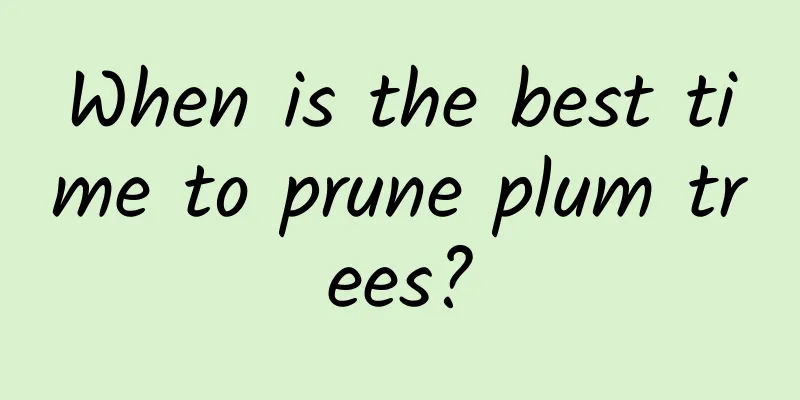Is hyacinth poisonous?

|
The toxicity of hyacinth comes from the bulbs. Touching the bulb will not cause poisoning, but if accidentally ingested, it will cause symptoms such as dizziness and diarrhea, so hyacinths are best placed where children cannot directly touch them. It is recommended not to place hyacinths in the bedroom. The scent of hyacinth flowers can refresh the mind, but placing them in the bedroom may cause insomnia. Although the scent of hyacinth is non-toxic, the plant's scent does contain aromatic chemicals such as ketones. If a small amount is inhaled, the human body can excrete it through metabolism, but long-term intake will increase the burden on internal organs and affect human health. Just place the hyacinth in a well-ventilated place such as the living room. |
<<: Phalaenopsis's efficacy and effects
>>: Can I grow hyacinths if there is a pregnant woman at home?
Recommend
Cut the flowers as soon as they bloom, and plant them in the ground. They will take root in 5 days!
Summer Chrysanthemum The beginning of autumn is a...
How to fatten the succulent bear paw "Bear's Paw" so that it has red claws?
1. How to gain weight 1. Light: It likes dry weat...
What kind of anthurium is suitable for hydroponics
1. What kind of suitability General types are mor...
Can roses be planted in the yard?
Can I plant roses in the yard? Roses can be plant...
How to repot Christmas cactus
Steps to repot Christmas cactus 1. Time to change...
How to reproduce soapwort
Selection of branches Today I will mainly introdu...
The best time to supplement calcium for grapes (what calcium fertilizer is best for calcium supplementation for grapes)
In agricultural cultivation, calcium is a trace e...
How to grow lilies
1. Use soil The soil used for growing lilies shou...
How to cultivate Christmas cactus to make it more vigorous
Christmas cactus growing conditions Christmas cac...
Key points of yam planting technology and management
Yangtzu , whose scientific name is yam bean, is a...
An old lady grows green radish, drinking a bowl of green vegetable water every 7 days, and 8 branches sprouted out in 3 days!
Add a bowl of vegetable water to the green radish...
When and how to plant milk cabbage
Planting time of milk cabbage If milk cabbage is ...
Planting time and method of autumn cucumbers
Autumn cucumbers are crisp and tender, highly nut...
How to care for the newly bought dragon beard orchid
1. Lighting Dragon beard orchid likes light, and ...
How to slow down the growth of bougainvillea
1. Arrangement After receiving the purchased seed...









